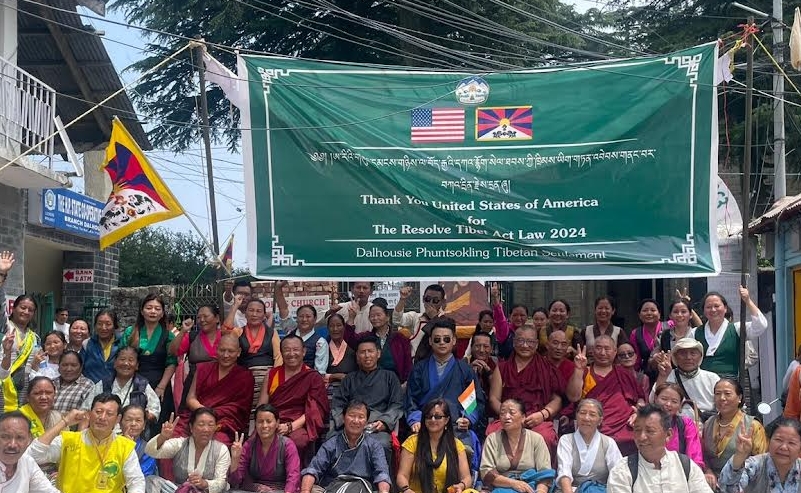
Formal statements by the American government opposing China’s oppression and supporting the victims of that oppression are noticed by the victims.
On July 17, 2024, Tibetans living in Dalhousie, a town in northern India, gathered to celebrate the passage of what the Central Tibetan Administration calls the Resolve Tibet Act and to urge the Indian government to follow suit (Tibet.net, July 24, 2024).
During the event, Tibetan Settlement Officer Phurbu Tsering and President of the Local Tibetan Assembly, Phurbu Damdul, delivered speeches to express appreciation to all involved in introducing, advancing and translating the Resolve Tibet Act into the Law of the United States. The duo further implored the Government of India to adopt similar positions on Tibet, highlighting the shared cultural and spiritual ties between the two neighbouring countries….
The Resolve Tibet Act is a landmark legislation that addresses the unresolved status of Tibet and emphasises the need for the future resolution of Sino-Tibet dispute under international Law.
It also upholds the Tibetan people’s right to self-determination and rejects China’s historical claims regarding Tibet’s status.
Just days earlier, on July 12, the Chinese government had closed “Another Acclaimed Tibetan Private School,” the Jigme Gyaltsen Nationalities Vocational High School in Golog.
The CTA recounts the school’s thirty-year record of accomplishment and argues that although the Chinese government has offered specious reasons for the closure, the government’s real purpose, as in other such cases, is to end the “preservation of Tibetan language and identity, including culture and religion.”
According to The Diplomat’s Marie Miller and Tenzin Lhadon, the Resolve Tibet Act is fine as far as it goes, but the U.S. “should be prepared to offer concrete support to the Tibetan community, which is already beginning to feel the CCP’s retaliatory crackdown.” (The example of retaliation given by the authors is China’s closing of Jigme Gyaltsen. China had already been closing Tibetan schools.)
The authors do not seem to offer any specific recommendations beyond that of more consistently countering CCP lies about Tibet and its history, a purpose that the Act itself affirms. What is the nature of the “substantive support to the Tibetan community it is inadvertently putting in harm’s way” that the U.S. should offer? Expedited refugee status for Tibetans? Pressure on India to treat Tibetans better? Invasion of China? What?





